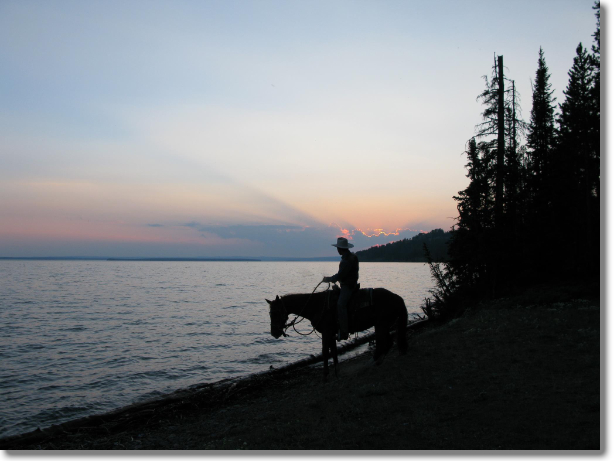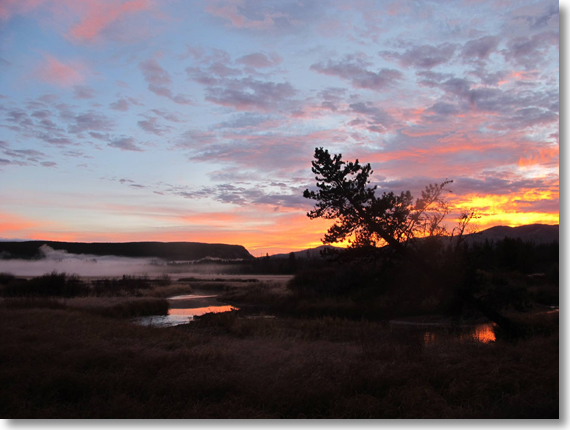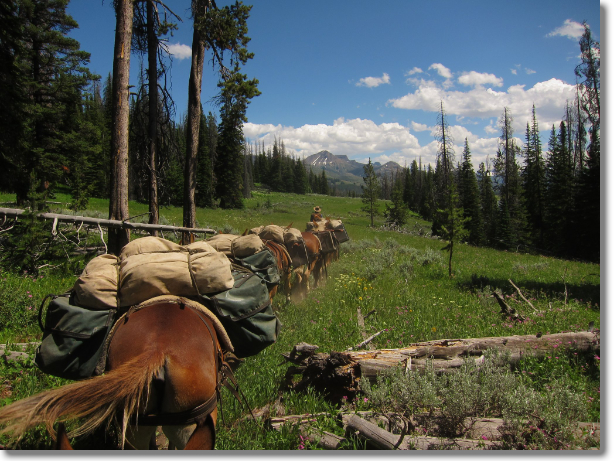Beginnings
 Jett Hitt was born in 1967 in Bentonville, Arkansas. His parents divorced when he was five, and his mother remarried a couple of years later. The family moved across the state line to a dairy farm in McDonald County, Missouri, some ten miles down the road and some thirty years back in time. The county was a provincial community that had attempted to secede from the Union, or at least from the state of Missouri, as recently as 1961. It was the poorest county in Missouri, a place where time had stood still since the 1930s. There, in the seclusion of the Ozark Mountains, Jett grew up, immersed in the magic and mystery that a boy finds in the woods.
Jett Hitt was born in 1967 in Bentonville, Arkansas. His parents divorced when he was five, and his mother remarried a couple of years later. The family moved across the state line to a dairy farm in McDonald County, Missouri, some ten miles down the road and some thirty years back in time. The county was a provincial community that had attempted to secede from the Union, or at least from the state of Missouri, as recently as 1961. It was the poorest county in Missouri, a place where time had stood still since the 1930s. There, in the seclusion of the Ozark Mountains, Jett grew up, immersed in the magic and mystery that a boy finds in the woods.
At a very young age, Jett became smitten by the music of John Denver. This magical man was at the height of his fame, and his music pointed to nature, conservation, environmentalism, and the Rocky Mountains. A few years later, John Williams captured his imagination. As improbable as it might be today, in 1977, the main title to Star Wars was a number one hit on rock and roll radio stations. Star Wars was everywhere, and it was intoxicating to a young boy. Jett saved his chore money and purchased both the book and the soundtrack, but it would be eight years before he actually saw the movie. The nearest movie theater screening the film was some fifty miles from the family farm, and dairy farmers don’t generally travel fifty miles to see outer space movies. Perhaps not seeing the film exacerbated his obsession with the music, but one thing was evident when the smoke cleared: Jett wanted to be a composer already at the age of ten. A few years later, a close family friend sealed the deal when he gifted Jett a Herbert von Karajan box set of the Bach Brandenburg Concertos.
Arkansas and East Germany
In 1985, Jett enrolled at the University of Arkansas and studied music composition with James Greeson and, primarily, Robert Mueller, as well as piano with Carolyn I. Hickson. At that time, a bachelor’s degree in music required considerable foreign language study. At the end of those requirements, Jett found himself the recipient of various German language scholarships, including a summer study abroad in Austria. He continued to study German mostly because it paid the bills. In 1990, he graduated with a double major in music and German.
On November 9, 1989, the Berlin Wall fell, and opportunity beckoned. Jett applied to 130 former East German institutions for employment as a language instructor. Clearly, they would need English teachers, and he had the language skills to navigate the culture. In 1991, he accepted a job at the Institut für Fremdsprachen at the Techinische Hochschule in Merseburg, Germany. It was an extraordinary time to be in former East Germany. The country was in shambles. The West German government poured copious amounts of capital into the infrastructure, dismantling and replacing most of the Soviet architecture and renovating the older, unkept pre-war structures. Nothing had been painted in fifty years, and the transformation was truly remarkable. Among the many casualties of the German Reunification was Jett’s employer, the Technische Hochschule, which was to be liquidated. Despite multiple offers from other institutions, he decided it was time to return stateside and attend graduate school.
Grad School
 As Jett contemplated his options, one particularly cloying statement kept resurfacing in his memory. During the application process, he had applied to multiple graduate schools, and one teacher had stated during an interview, “Rachmaninov is one of my favorite composers.” Jett knew at the time that this was the person he wanted to study with, but there was one serious caveat. This teacher was at East Texas State University. Applying there had been a last resort contingency plan. ETSU was in Commerce, Texas, and it was essentially a teacher’s college. He had never seriously considered attending ETSU, but staying at LSU and simply buying a master’s degree was unthinkable.
As Jett contemplated his options, one particularly cloying statement kept resurfacing in his memory. During the application process, he had applied to multiple graduate schools, and one teacher had stated during an interview, “Rachmaninov is one of my favorite composers.” Jett knew at the time that this was the person he wanted to study with, but there was one serious caveat. This teacher was at East Texas State University. Applying there had been a last resort contingency plan. ETSU was in Commerce, Texas, and it was essentially a teacher’s college. He had never seriously considered attending ETSU, but staying at LSU and simply buying a master’s degree was unthinkable.
So, in the fall of 1994, Jett began studying with Dr. Ted Hansen at ETSU. Dr. Hansen had been the Dean of the St. Louis Conservatory when it went bankrupt in 1989, and being close to retirement, he had taken a job at this quiet little university to finish out his career. (Ironically, he taught there until he died at the age of 83 on September 8, 2018.) Enrolling at ETSU had been an act of desperation, but it turned out to be the best decision that Jett ever made, compositionally speaking. Dr. Hansen was a wonderful mentor and the perfect guide for the introspective journey that a composer necessarily undertakes. It is not really possible to teach someone how to compose. The best one can do is show the would-be composer where to look, and Ted Hansen knew all the best places. He was the finest of all Jett’s teachers.
After graduating from ETSU, Jett moved his sister to San Francisco, and on the return journey, he unwittingly made a life-altering sojourn to Yellowstone National Park. He didn’t know it yet, but that trip changed everything. This trip kindled the first spark of what would become Yellowstone for Violin and Orchestra, and it started an obsessive, lifelong love for the park.
In January of 1996, Jett enrolled in a doctoral program at the University of Kentucky. Joe Baber was the composer-in-residence, and he and Jett were particularly compatible. Composition lessons with Joe were as likely to be an extended discussion of Robert Frost or Ernest Hemingway as having any musical focus. It was a very comfortable time in Jett’s studies, and he was especially fond of Joe Baber. After attending the University of Kentucky for half a semester, however, he suddenly learned that Joe was slated to go on sabbatical. No one had informed him of this before he enrolled. The University of Kentucky was a major state university with 26,000 students, and they had exactly one composer on the faculty. When that composer took a sabbatical, the School of Music didn’t replace him. The situation was mind-boggling, and the fact that there was no money to hire a replacement reflected the reality that the School of Music was little more than a coven of musicologists. An entire studio of composition students—some pursuing master’s degrees and doctorates— was simply left without a teacher. The Director of Graduate Studies, Dr. Richard Domek, stepped in and saved the day, at least for Jett. He arranged for Jett to study jazz composition with Miles Osland. Serendipity somehow sprouted from absurdity, and Jett spent the following year in the studio of Miles Osland. The fruit of this study was Doe-Eyed, a jazz ballad written for and recorded by Miles. To this day, Jett considers Miles to be the most consummate musician he has ever known. The man could improvise a better tune than most composers could write.
Idaho

With his coursework in Kentucky finished, a one-semester teaching job brought Jett to Idaho State University at Pocatello in the fall of 1998. The job offer came less than a week before classes started, and Jett had to make his way from Missouri to Idaho at the drop of a hat. Recognizing the opportunity, he drove straight to Yellowstone, entering through the north gate at Gardiner, Montana, making the Grand Loop inside the park, and exiting at West Yellowstone en route to Pocatello. The proximity of his new job to Yellowstone seemed like the call of destiny.
Like all music departments, the one at ISU had its share of problems. A particularly nasty tenure battle was just coming to a close as Jett joined the faculty. The faculty pianist had been unanimously granted tenure by his committee only to have it vetoed by the chairman of the department. The dean supported the chairman’s decision, and the university president wouldn’t touch it. He sent it back to the department for a do-over. A new committee that was sure to deny the faculty pianist tenure was then assembled. This committee included an untenured junior faculty member whose tenure was held hostage by her vote. The faculty pianist was, of course, denied tenure. His last year overlapped with Jett’s first, and the two became fast friends.
The Idaho years were an especially happy time for Jett, and the job at ISU would eventually morph into a four-year position. The local people were largely Mormon, and despite the peculiar nature of their beliefs, their culture was steeped in uncommonly good values. It made for a very wholesome environment and good neighbors. It was during these years that Yellowstone for Violin and Orchestra was penned and recorded. One of the best things about ISU was its proximity to Yellowstone. Jett spent nearly every weekend in the park until it closed in November. One day, while walking through the student union, a solicitor importuned him as he passed by. “Hey, cowboy, you look like you’d like to work in Yellowstone.” Intrigued, he moseyed on over and asked, “Got any good horseback jobs?” “Oh well, those are really hard to come by, but we got some other great jobs.” Jett chuckled and said, “Well, honey, I ain’t flipping’ burgers or changin’ sheets.” About that time, one of his students called out, “Hey Dr. Hitt, blah blah blah. . .” The bewildered solicitor looked up and questioned, “You’re a professor?” He nodded in the affirmative. “I never saw a professor wear a cowboy hat before.” “Well, welcome to Idaho.” The next summer, he had a job at the Mammoth Hot Springs Horseback Corral, giving one-hour horseback rides. The job was four days on, three days off, and those days off were spent deep in the backcountry astride a little filly named Jitterbug. Thereafter, Jett was able to spend his summers in Yellowstone as a saddle bum.
Texas
 Before Jett’s arrival in Huntsville, the chairman had arranged for him to share a house with another faculty member who was struggling to make his house payment. Unbeknownst to Jett, this person was also struggling with a meth addiction and suffering from AIDS. Many of the department faculty members seemed to be fully aware of this situation, but no one bothered to tell Jett. It was months before the complete nature of his living arrangement became apparent, and Jett was livid when he realized that he knowingly had been lured into this ridiculous situation. It was unconscionable.
Before Jett’s arrival in Huntsville, the chairman had arranged for him to share a house with another faculty member who was struggling to make his house payment. Unbeknownst to Jett, this person was also struggling with a meth addiction and suffering from AIDS. Many of the department faculty members seemed to be fully aware of this situation, but no one bothered to tell Jett. It was months before the complete nature of his living arrangement became apparent, and Jett was livid when he realized that he knowingly had been lured into this ridiculous situation. It was unconscionable.
To make matters worse, Jett began to develop deep-seated reservations about the SHSU faculty. It was the most incestuous environment that he had ever encountered. Thirty-seven of the forty-three music faculty members had one or more degrees from SHSU. Even the president of the university was an SHSU graduate. This sort of nepotism was unheard of in the academic world, and it made for a Texas good ol’ boy system where everything was done with a nod and a wink. It was an unsettling environment. Jett’s interactions with the core faculty were mostly limited to the occasional faculty outing, which generally meant a trip to the buffet at the Golden Corral–the perfect metaphor for life at SHSU: a cheap, shitty product served à la carte.
Adding to Jett’s discontent was the fact that America was at war. Muslim extremists, mostly from Saudi Arabia, had ostensibly hijacked four airliners with box cutters and flown them into buildings. Logically, America attacked Afghanistan. As further punishment to the sponsors of the mostly Saudi Arabian terrorists, George W. Bush was beating the drums of more war, this time with Iraq. No reasonably intelligent, thinking person could be anything but dismayed and distraught.
Life in Huntsville was abysmal, and it was a very dark year. Finally, in late winter, Jett found some solace in a local girl. The faculty pianist referred to her as “the hippie chick.” She was a welcome distraction from the grim reality of life in Huntsville, and Jett genuinely liked her. She was fun, and it was essential to be where fun was. The fun, however, would come to an abrupt end in late April. They were at the beach in Galveston when the phone rang. It was his mother. His biological father had committed suicide.
The semester soon ended, and Jett returned to the Ozarks to put his father’s affairs in order. Shortly thereafter, “the hippie chick” called to announce that she and the faculty pianist were having an affair. With two horses and a mule in tow, he fled to Yellowstone as fast as his Ford 7.3 turbo diesel would carry him.
Yellowstone
The defrocking of the faculty pianist had been announced very early in the summer, and Jett grappled with the idea of returning to Texas. One doesn’t lightly give up an academic career, as such a career is decades in the making. As he pondered his options, a new opportunity presented itself. One day, while walking across the lawn in Yellowstone’s headquarters, Mammoth Hot Springs, he encountered the Head of Concessions Management for the National Park Service. She greeted him and said, “You know, the outfitting permits are up for bid, and you’re the kind of person that we would like to have doing that.” Jett had discussed starting an outfitting business with her in the past, so the invitation was not without foundation. After several meetings to discuss the prospect, Jett resigned from his position with SHSU and applied for an outfitting permit. He was awarded the permit the following March and founded Yellowstone Wilderness Outfitters.
He turned his back on the music world and returned to one of the principal skills of his youth, horses. His parents were distraught and struggled to understand. They had finally come to grips with the eight years he had spent going to college, and they had grown attached to the idea that he was a university professor. The look on their faces the night he told them was one of sheer horror. The consternation in his father’s voice was indescribable as he muttered, “Well gawdamn, boy, you didn’t need to go to no college to give horseback rides.”
About | Short Biography | Outfitting | Interview
